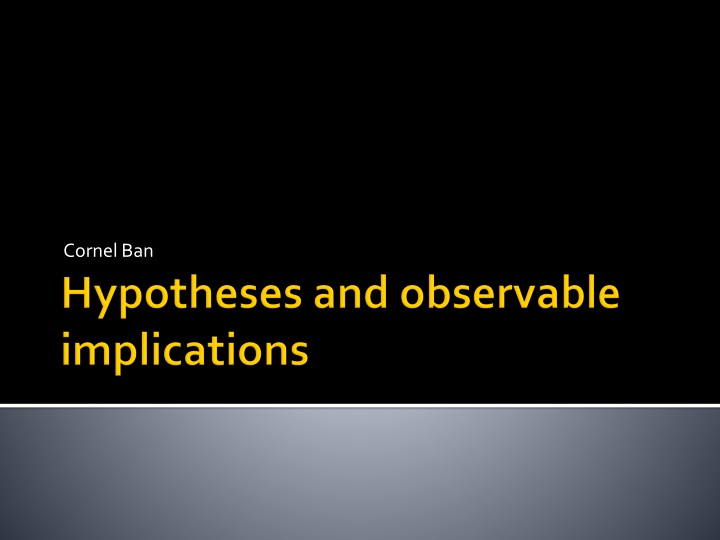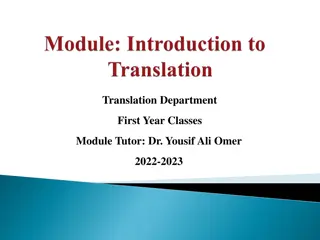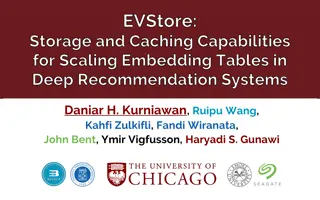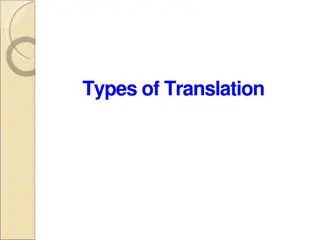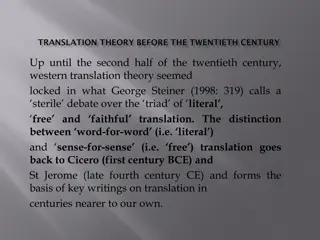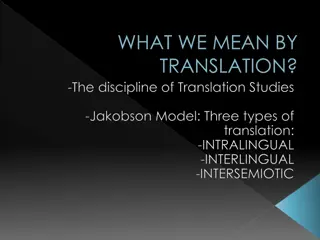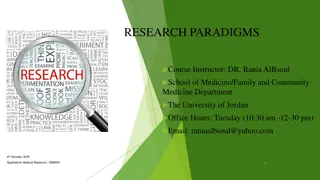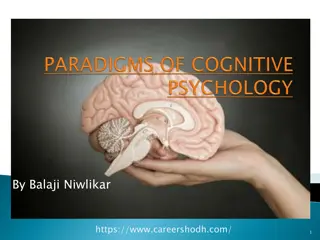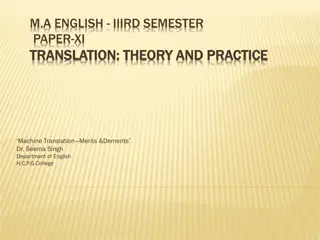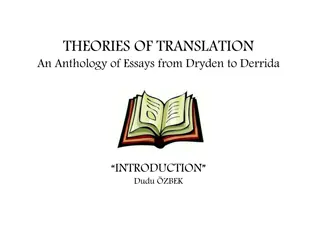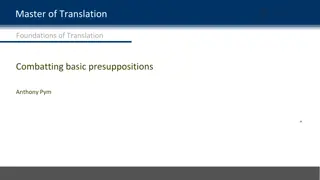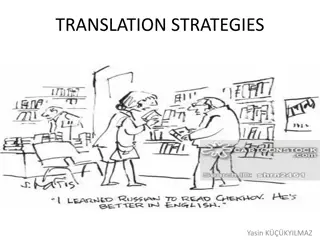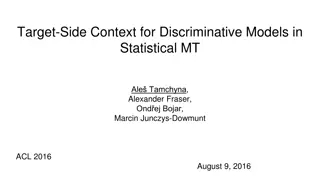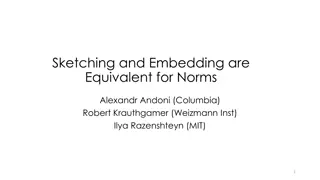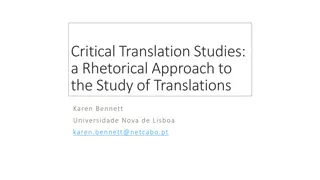Translation Processes in Embedding New Economic Paradigms
Translation processes play a crucial role in embedding new economic paradigms domestically, involving ideational entrepreneurs who adapt foreign economic ideas to local conditions. These translators, such as economists, civil servants, and corporate holders of knowledge, use incremental interventions or capitalize on crises to destabilize existing equilibria. The analysis involves measuring the strength, patterns, and outcomes of transnational networks over time, illustrating how neoliberal ideas are edited with local notions for sustained relevance.
Download Presentation

Please find below an Image/Link to download the presentation.
The content on the website is provided AS IS for your information and personal use only. It may not be sold, licensed, or shared on other websites without obtaining consent from the author.If you encounter any issues during the download, it is possible that the publisher has removed the file from their server.
You are allowed to download the files provided on this website for personal or commercial use, subject to the condition that they are used lawfully. All files are the property of their respective owners.
The content on the website is provided AS IS for your information and personal use only. It may not be sold, licensed, or shared on other websites without obtaining consent from the author.
E N D
Presentation Transcript
Build your hypotheses on the lit review Be explicit about the connections between the lit review and hypotheses You can t have just one hypothesis. Only through competition between at least two hypothesis you can begin to convince people
New economic paradigms become domestically embedded through translation processes that involve both domestic and external ideational entrepreneurs.
Translation refers to the process whereby ideational entrepreneurs called translators adapt to local conditions economic ideas invented and/or developed abroad. The translators can be as diverse as economists, civil servants, civil society organizations, corporate holders of technoscientificknowledge or even exceptional individuals.
These actors do their translation work either through incremental interventions into policymaking, or by taking advantage of crises as critical junctures that destabilize the existing ideational and/or policy equilibriaas their point of insertion.
The challenge contained in the analysis of translation as a process of network expansion would be to measure -the strength, -the patterns and the outcomes of these transnational networks over time.
To illustrate, in both Spain and Romania neoliberalism was layered with ideas salvaged from the debris of local developmentalistparadigms such as notions of industrial champions and a penchant for corporatist institutions. But at no point did Spanish or Romanian translators give up on the main goals of the neoliberal paradigm such as trade liberalization, sound finance, and FDI promotion. Nevertheless, the editing of these imported ideas with local ideas helps explain why, even after the neoliberal turn of 1982, .
